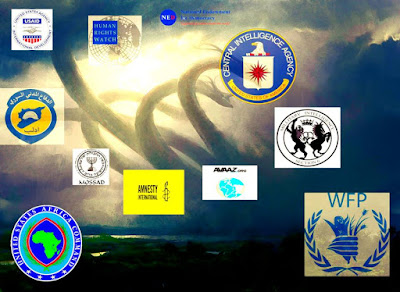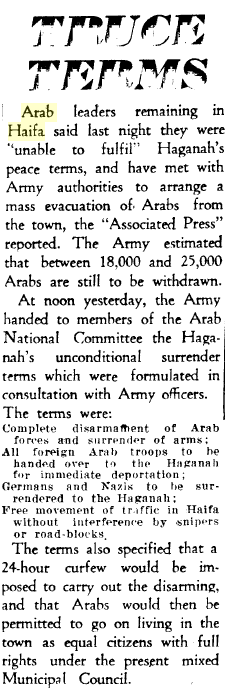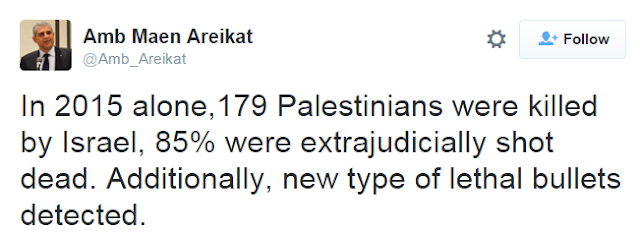The Tragic Failure of the Arab World, and Why It's Bad for Israel
The 21st century is becoming increasingly characterized by Arab states coming apart at the seams or even completely crumbling, while jihadists are gaining footholds throughout Arab lands.Analysis: Doctors Without Borders’ Anti-Israel Crusade
To compete with more developed nations, Arabs needed to address four challenges:
1. To create sovereign states with functioning national institutions that depend upon cooperative citizens.
2. To develop the capacity to produce technology, which would secure them a competitive position in the world economy.
3. To handle Islam in a way that would instill values to bring society together - like common identity and solidarity - but also neutralize the violent elements that look to restore the ways of the past.
4. To shake off the neocolonialist influence and involvement of superpowers, and act independently in the international arena.
In the West, the thinking tends to be that the toppling of an authoritarian regime might lead to the establishment of a democracy. However, bitter experience has shown that overthrowing the rulers prompts the whole system to collapse, and then the alternative is chaos. It turned out that while it's possible to topple a dictator, the proper foundations for fostering democracy in the aftermath - both conceptually and institutionally - were lacking.
The dizzying growth of the global economy is based primarily on knowledge. In most Arab countries, the level of scientific and technological know-how does not meet the levels required to support advanced, innovative means of production. Knowledge in the Arab world is not up to par because their schools and universities place too great an emphasis on memorization and rote learning.
In 2000, Islamist groups were small, underground factions with limited capabilities; by 2015, they had become large forces with military capabilities and cutting-edge weaponry, and were firmly established throughout Arab lands. The last 15 years have seen a series of mega-terrorist attacks throughout the world. During the last five years alone, there has been a stark increase in the number of casualties from Islamic terrorism.
The international medical organization Medecins Sans Frontieres (MSF-Doctors Without Borders) prides itself on its neutrality, claiming to provide emergency assistance to people around the world regardless of their “race, religion, gender or political affiliation.” In practice, however, MSF consistently abuses its status as a humanitarian organization to launch venomous anti-Israel political campaigns. These attacks are entirely divorced from medical and health related issues, raising questions as to what its priorities and goals are.HRC Op-Ed Published in Kingston Whig-Standard: “Deir Yassin ‘Misunderstood’”
The most recent manifestation of this phenomenon can be credited to MSF-France. The French branch of the organization recently launched an exhibition titled “In Between Wars,” serving as a mouthpiece for Palestinian propaganda. In it, MSF parrots the “Nakba” narrative that views the founding of the State of Israel as a catastrophe, thus delegitimizing the very existence of the Jewish state. Moreover, MSF romanticizes Palestinian violence by referring to images of “armed soldiers face[ing] young stone throwers or Molotov cocktails” as “icons symbolizing the struggle of the Palestinian people against the Israeli occupation.”
Similarly, the exhibition portrays the living room of Palestinian homes as a place to pay tribute to “martyrs”—a term that whitewashes the murderous terror attacks many carried out against innocent civilians.
In response, Roger Cukierman, head of the Council of Jewish Institutions in France, condemned the display as “an apology for terrorism…that could inflame antisemitic violence.”
In war, the saying goes, the first casualty is the truth. Referring to the battle to capture Deir Yassin during the 1948 Israeli War of Independence, Louis Delvoie, a fellow in the Centre for International and Defence Policy at Queen’s University, claimed in a recent column (“Terrorists and their causes,” Dec. 12) that Jewish militias committed “one of the most murderous terrorist attacks in the history of the modern Middle East” by intentionally killing “some 250 unarmed civilians, men, women and children, and threw their bodies into a well.” Importantly, there’s no evidence to confirm the veracity of Delvoie’s allegations.
Respected Middle East historian Mitchell Bard has observed that Deir Yassin “remains one of the most infamous, yet misunderstood, incidents in the history of Israel. During the battle, launched by the Irgun, approximately 100 Arabs were killed.”
As Steven Plaut, professor at the Graduate School of the Business Administration at the University of Haifa, noted: “Deir Yassin was a not-at-all-innocent Arab village sitting near the only road into Jerusalem in 1948. In the previous December, the UN had voted to partition what was left of Mandatory Palestine into two states, one a Jewish state and the other an Arab state to be named Palestine, of approximately equal sizes. The Jews of Israel accepted the plan, while the Arab states and the Palestinian Arab leadership rejected it. Had they accepted it, a Palestinian state would have arisen peacefully in 1948. In response to the UN resolution, Arabs launched attacks against Jews everywhere in the country and in particular placed the city of Jerusalem under siege. The Jewish population of Jerusalem was quite literally starving. The only road into the city passed through the area of Deir Yassin, and the Arab militiamen in the town were stopping all convoys from passing through.”
Israel’s path towards statehood, independence and the Jewish people’s right to self-determination was always hoped to be procured through diplomacy, not war. Israel, contrary to Delvoie’s assertions, did not “resort to terrorism in the fight for the creation” of the Jewish state.










































